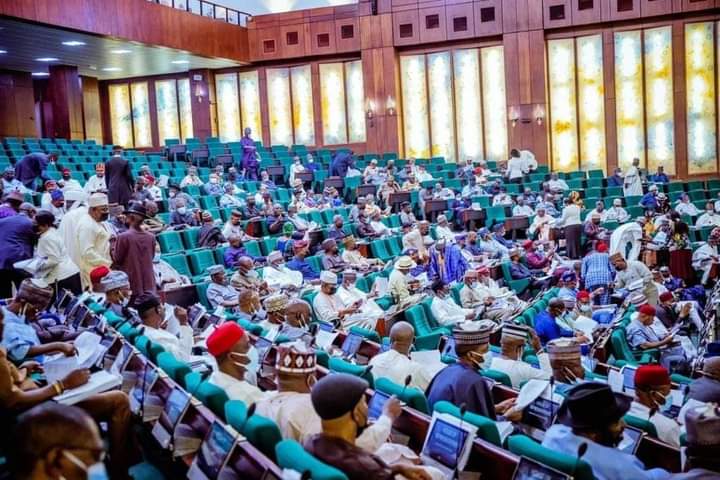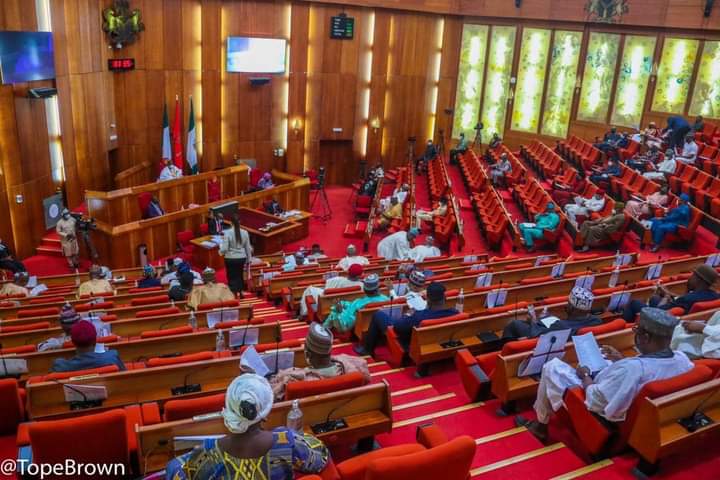The house of representatives has passed a bill seeking to stop non-serving officers of the Nigeria Customs Service (NCS) from being appointed as comptroller-general of the agency.
The report on the bill was adopted on Tuesday after Leke Abejide, chairman of the committee on customs and excise, moved a motion for the consideration of its 283 clauses at the “committee of the whole” presided over by Idris Wase, deputy speaker of the house.
The proposed legislation seeks to repeal the Customs and Excise Management Act, 2004 and reenact the Nigeria Customs Service (Establishment) Bill, 2021.
Hameed Ali, a retired military officer, is the current comptroller-general of the NCS.
Advertisement
Since his appointment in 2015, Ali has been carrying on his duties in civilian attire, and in March 2017, when he appeared before the senate committee on customs and excise duties, he was asked to explain why he refuses to wear the customs uniform.
In his response, Ali said he does not wear customs uniform because as a retired army officer it was against military tradition for him to wear the uniform of another organisation.
Briefing journalists after plenary, Abejide said the proposed legislation is aimed at transforming the operations of the NCS to make it more efficient and value-driven.
Advertisement
He said the bill proposes “legislative input into the appointment of comptroller-general of customs similar to other organisations like inspector-general of police, Nigeria Immigration Service, and the service chiefs”.
The lawmaker said the existing act does not provide that only customs officers be appointed to head the service.
This means that if the bill is passed into law, only serving officers of the NCS will be appointed to head the agency.
“The passage of this bill is a step in the right direction, especially in view of the fact that the bill is the first major reform in the Nigeria Customs Service legal framework in 63 years,” he said.
Advertisement
“The old Act has become obsolete in today’s competitive global world. A review of the Act seeks to reposition the NCS for improved efficiency and service delivery. Full automation of the NCS with modern reality will facilitate trade, improve revenue generation and more importantly expose illegal importation of arms and ammunition into the country. All of these would be made possible when this bill becomes an act.
“This bill, when it becomes an act, will position the Nigeria Customs Service to be financially stable and this will enable NCS to recruit the required number of officers they need to man our porous border stations.
“The current seven percent cost of collection from the duties payment is not enough to pay salaries of officers, not to talk of improving the infrastructures. For this reason, this bill provides for a funding system based on four percent FOB according to international best practices to address funding problems and to reposition the service for improved efficiency and service delivery.”
The bill, according to the legislator, proposes “stiffer punishments” for serious customs offences and will encourage more revenue in the area of payment of fines.
Advertisement
The bill also makes provision for “the arbitration panel for the purpose of dispute resolution to reduce multiplicity of cases at the court of law relating to customs issues; introduction of new excise collectable revenue avenues in line with the recently enacted Finance Act 2021; and provides legal backing for the collection of excise duties on all carbonated drinks”.
Abejide said the bill will facilitate “greater revenue generation in tandem with the goal and target given to customs”.
Advertisement
“The most innovative inclusion in this bill is the objective of eradicating problems of corruption, fraud and malpractices together with inefficiencies and ineffectiveness in the operation of the service, which has hindered the desire to contribute maximally to the economic development of the nation,” Abejide he said.
“This bill is in tune with ICT development which is going to give the service the ICT demand it requires for its operations in line with international best practice. This would ensure a model that can think a thousand times faster and more efficiently than humans do.”
Advertisement
In line with parliamentary procedure, the bill will have to be read the third time, after which it would be sent to the senate for concurrence.
Advertisement
Add a comment






